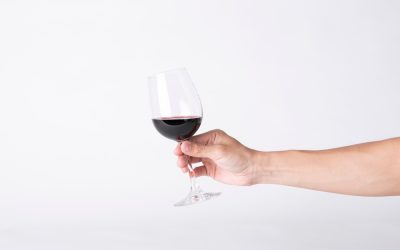You might also hold onto a nonalcoholic drink instead, ask a friend to support you in difficult situations or simply exit early if temptation gets too strong, the NIAAA suggests. It’s possible to develop a better relationship with alcohol and make more mindful, informed choices about drinking without total sobriety. It’s important to know that if your body has developed a strong dependence on alcohol, trying to quit “cold turkey” can be hazardous to your health. For some people, it’s best Substance abuse to get professional help when creating your reduction plan.

Be specific about how much you want to cut back
- A safe detox involves gradually reducing alcohol intake or seeking professional help through a medical detox program.
- It’s easier to achieve a goal with the right tools, resources, and people to empower you along the way.
- Non-alcoholic beverages can take the pressure to drink off and make it easier to fit in at a social event without compromising your goals.
- In addition to leaning on your personal support network, consider joining a support group for individuals who are working to cut back on or quit drinking.
Your liver will start to recover and function better, your skin can become clearer, and your risk of serious diseases such as heart disease and certain types of cancer can significantly decrease. Plus, weight loss is often an unexpected bonus when you say no to those extra alcohol calories. It’s during this period that peer support becomes invaluable; it helps to know that others are experiencing similar struggles or have overcome them already. You’re part of a community now – one united by shared experiences and common goals. Cultural perspectives on alcohol also influence our attitudes towards its use and misuse, shaping norms around what constitutes acceptable levels of consumption.
Learn About Addiction
Avoiding environments where Drinking Is the Main Event can be especially important in the first months of a journey to drink less or quit. While I was able to stop after one or two drinks in more sedate day-to-day settings like a casual dinner with friends, DIMEs were different. All of the environmental and social cues were to keep drinking, threatening to overpower the commitment and strategies that usually worked so well. Try new activities that make you feel proud, relaxed and connected—to yourself, to others, to nature or anything else that brings you joy.
Choosing an Alcohol Rehab Treatment Program
Take up a hobby, begin an exercise program, make new friends, or spend more time with your family. Find something that you enjoy that will occupy the time during which you would usually be drinking. You might wonder, “What’s so special about mindful drinking? ” Mindful drinking means being present and paying attention to your drinking experience.

Avoid Hard Alcohol
Stopping drinking requires self-awareness, structured planning, and long-term commitment. Key steps include recognizing the need to how to control drinking quit, seeking medical guidance, setting realistic goals, and building a strong support system. Tracking progress with apps, managing social situations, and learning from setbacks help sustain sobriety.
- You might wonder, “What’s so special about mindful drinking?
- You may be worried that quitting comes with bad physical symptoms such as trembling hands, nausea, sweating and other effects.
- There are ways you can cut down on your drinking without quitting entirely.
- Your primary care provider may or may not be willing to prescribe you naltrexone for cutting back on your drinking if that is your goal.
- If you put down the bottle for 30 days, but you slip up and have a drink on day 31, this doesn’t undo the 30 days before.
Start to Reduce
Repeat this process several times until you feel more centered and in control. Having the backing of loved ones can foster motivation, resilience, and a commitment to recovery. It can reshape an individual’s environment into a supportive and proactive system, reducing the opportunities for relapse.
- Instead of succumbing to regret and humiliation, simply resume your plan.
- It’s all about empowering yourself and creating lasting positive change in your life.
- You can reach out to your healthcare provider to learn more about the next steps.
- Help them understand your triggers and ask for the needed support during challenging times.
- However, studies have shown that abstinence often yields more benefits in the long run.
- Seeking professional help early can prevent a return to drinking.
It’s like giving yourself a moment to check in and see how you’re feeling while you sip on that drink. You’re not just gulping it down without a second thought; you’re taking it slow and noticing how it affects you. Managing your drinking doesn’t have to be all about strict control and massive willpower. This Naked Mind’s approach flips the script by focusing on how you want to feel instead. It’s all about empowering yourself and creating lasting positive change in your life. Jeanette Hu, AMFT, is a decade-long daily drinker turned psychotherapist and the creator of the Empowered Alcohol-Free 4-Pillar System.
Public Health
She incorporates cultural relevance and non-traditional interventions and strategies to strengthen her clients’ steps towards goals of behavioral, emotional, social and mental wellness. Importantly we help you understand that you are not giving anything up. Overall, stopping drinking can lead to a healthier and happier lifestyle.
